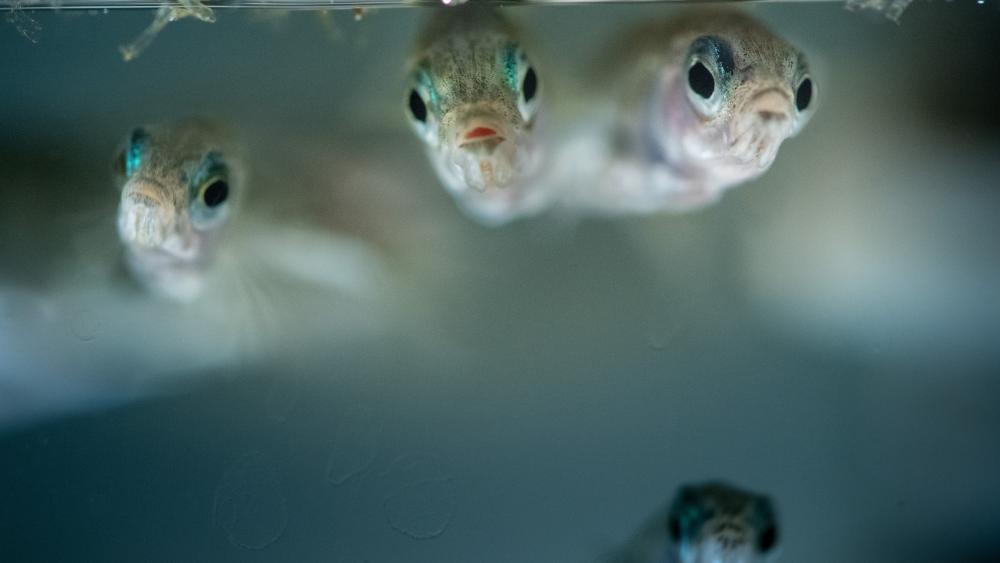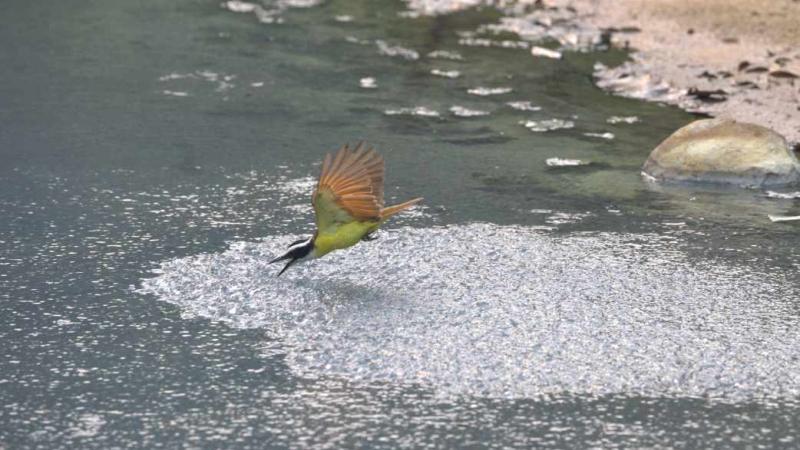
In their study, the scientists analysed the behaviour of infected sticklebacks. | Photo: David Ausserhofer
Group living has many advantages, for example it reduces the risk of being eaten. But some parasites can influence how animals react to attacks by predators. The researchers were therefore interested in whether infected, behaviourally altered individuals affect the spread of escape reactions within a swarm. They infected sticklebacks with the tapeworm Schistocephalus solidus, because this increases risk-taking behaviour and reduces the social responsiveness of its host. Then they confronted the sticklebacks with an artificial bird attack, with one group containing infected individuals and the other not.
With uninfected sticklebacks, the waves of escape quickly spread through the entire shoal and the fish sought shelter at depth for prolonged periods. With infected sticklebacks, the escape wave was interrupted and uninfected fish also returned to the water surface more quickly. They are thus exposed to a higher risk when they join infected individuals. The observed processes could also play a role in many other prey species and their parasites.





